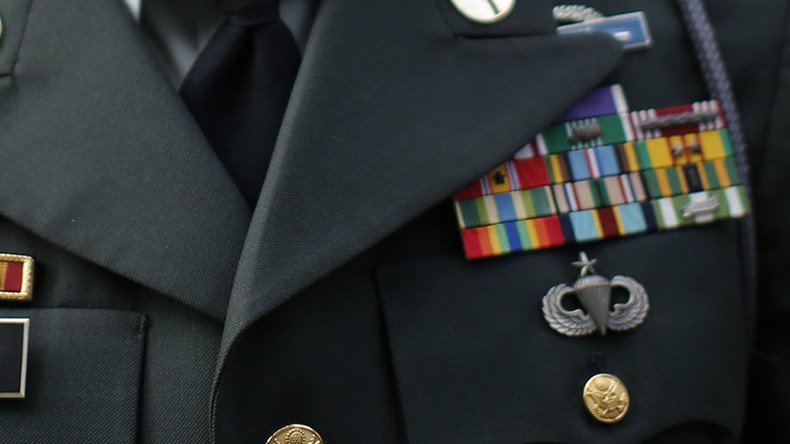Hotline calls from suicidal veterans went to voicemail – former VA official

As many as 40 percent of calls to the veterans’ suicide hotline went to voicemail or backup call centers with untrained staff, the program’s former director revealed. Outraged lawmakers have passed a bill requiring that all calls be answered properly.
Even as calls to the hotline spiked in recent years, some of the staff at the Veterans Administration would handle fewer than five calls per day, leave early and "spend very little time on the phone or engaged in assigned productive activity," according to internal emails from Greg Hughes, former director of the Veterans Crisis Line.
In February, the VA inspector general reported that one in six calls ends up at voicemail or backup centers; staff at one backup facility was not even aware the voicemail system existed. Up to 40 percent of calls were rolling over in May alone, according to Hughes, who left the agency in June.
Official: One-third of calls to VA suicide hotline roll over https://t.co/6c1s9fHZKqpic.twitter.com/RG6VGjW36N
— Marine Corps Times (@Marinetimes) September 26, 2016
On Monday, the House of Representatives unanimously approved a bill that mandates the VA Crisis Line staff to do their job properly. House Resolution 5392, known as the “No Veterans Crisis Line Call Should Go Unanswered Act,” requires the VA to make sure all communications received by the crisis line are answered in a timely manner by an appropriately qualified person. It now goes before the Senate for consideration.
“A veteran in need cannot wait for help, and any incident where a veteran has trouble with the Veterans Crisis Line is simply unacceptable,” said Representative David Young, the Iowa Republican who sponsored the bill.
Veterans deserve quality mental health care, which is why I introduced a bill to improve the Veterans Crisis Line: https://t.co/Cag8XccioWpic.twitter.com/G7mnmJafBR
— David Young (@RepDavidYoung) September 26, 2016
Responding to the legislative action, the embattled agency said it would be hiring more staff at its New York office and opening a new call center in Atlanta, Georgia. The VA also said it would improve training to address the inspector general’s report that calls routinely going to voicemail.
"We are saving thousands of lives. But we will not rest as long as there are veterans who remain at risk," VA Undersecretary for Health David Shulkin said in a statement.
READ MORE: Dramatic rise in suicides among US veterans, 30% increase since 2001 – study
Shulkin described veteran suicides a “public health crisis,” noting that an estimated 20 veterans commit suicide every day, and most of them are not receiving VA care in their last years.
That number comes from a comprehensive study of veteran suicides released by the VA in July. In 2015, more than 1.6 million former members of the US military received mental health treatment from the VA, and the agency said it would “aggressively” implement new measures to cut down on suicides.
In 2015 alone, the crisis line program made 80,000 referrals to suicide prevention coordinators and dispatched emergency responders an average of 30 times a day, according to Shulkin. The hotline received 500,000 calls last year, up from 1,000 in 2007 when it was first established.













